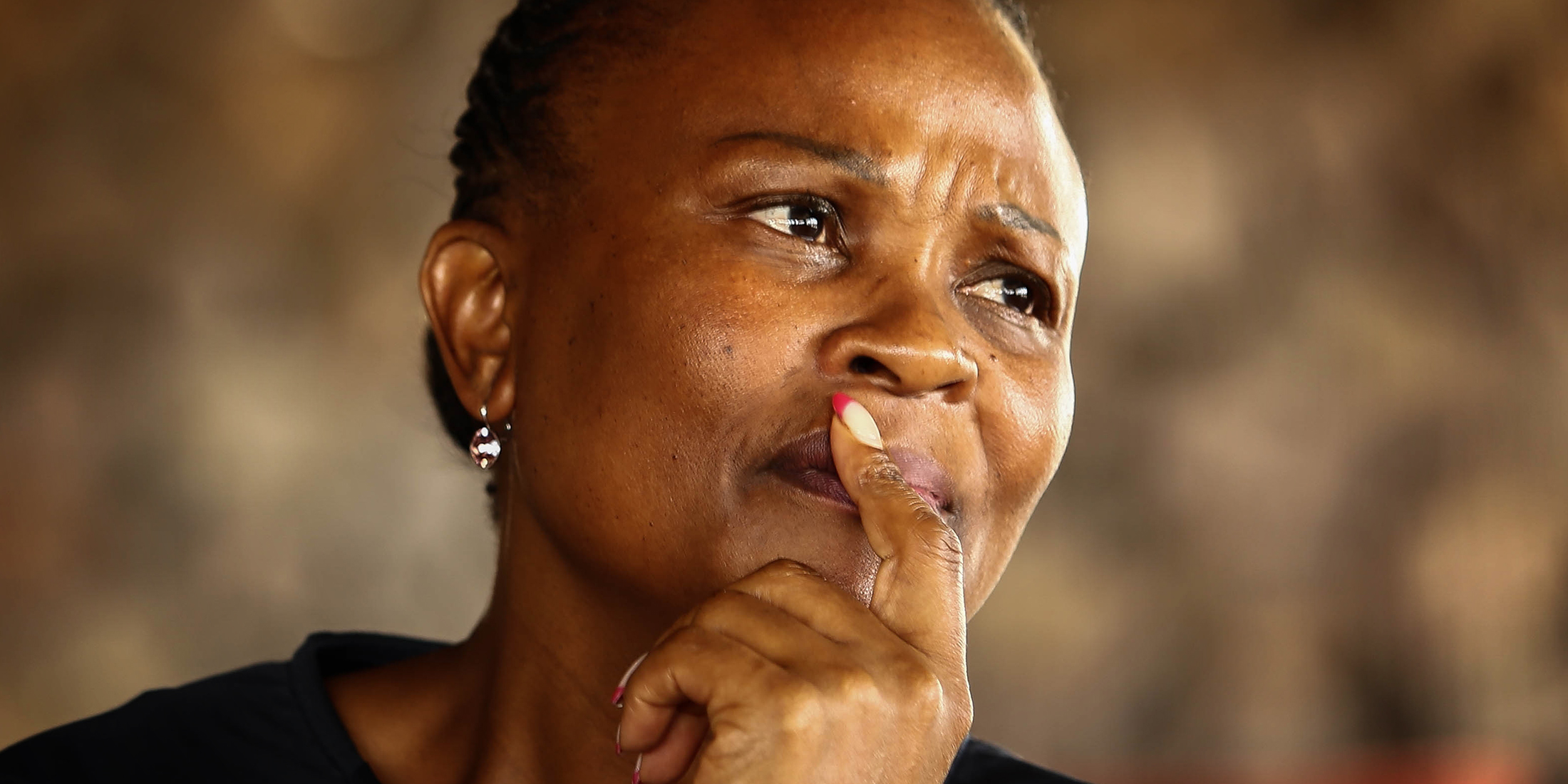More than once, Public Protector Busisiwe Mkhwebane has been accused of lying to the courts. The issue raised its head again this week in a Constitutional Court ruling which in other respects was favourable to Mkhwebane.
The question at the heart of the latest Constitutional Court judgment was whether the South African Revenue Services (Sars) could withhold former president Jacob Zuma’s tax information on the grounds that taxpayers’ information is protected under the Tax Administration Act, or whether the Public Protector had the right to access that information by means of her subpoena powers, as she maintained.
A high court judgment on the matter previously found that the protection of taxpayer information was part of the constitutional right to privacy, and “serves the important purpose of encouraging voluntary disclosure by taxpayers”. It ordered Mkhwebane to pay 85% of Sars’ legal costs in her personal capacity.
The unanimous Constitutional Court judgment this week, authored by Judge Mbuyiseli Madlanga, refused Mkhwebane the right to appeal against the high court judgment. But it did grant the Public Protector the right to appeal against the order that she should pay costs personally.
The judgment suggests that rather than pursuing legal action and going on a “power-testing expedition”, the Public Protector could rather have simply asked former president Jacob Zuma for his permission to have his tax records disclosed.
But it also found that “unwarranted costs orders against the Public Protector in her personal capacity in work-related litigation may have a chilling and deleterious effect on the exercise of her powers”.
Punitive costs orders are only justified if the state officials in question show “a gross disregard of professional responsibilities”, the apex court found.
In the matter concerning Zuma’s tax records, Mkhwebane’s view that she was entitled to issue a subpoena to claim the records was “misguided”, but appears to have been “genuinely held”.
Wrote Judge Madlanga: “There appears to be a developing trend of seeking personal costs orders in most if not all matters involving the Public Protector”.
This is dangerous, he warned, because “the Public Protector’s office is more important than any incumbent”. The judgment stresses, however, that this finding should not be misinterpreted to mean that the Constitutional Court is motivated by “maudlin sympathy for the Public Protector”.
It is at the end of the judgment that the Constitutional Court raises the issue of lying to the courts — though in this instance, the individual who comes in for criticism is not Mkhwebane, but her lawyer Dali Mpofu SC.
On the advice of Mpofu, Mkhwebane claimed to the Constitutional Court that she had not received notice that a personal costs order would be sought against her in the Sars matter.
In reality, in the high court affidavit, Mkhwebane had already stated under oath that she had read the Sars Commissioner’s affidavit seeking a personal costs order. Ordinarily, this “astounding” untruth would warrant “censure and perhaps more”, the Constitutional Court judgment notes.
But it also notes that context is important: in this case, the false claim was the brainchild of advocate Mpofu.
In oral argument before the court, Mpofu “owned up to the fact that it was his idea that the Public Protector must adopt this stance, an idea he wisely abandoned and did not pursue in oral argument as it was legally indefensible”.
The judgment acknowledges that one can criticise Mkhwebane for failing to realise this legal advice was terrible.
“But can we really go far with that criticism? I think not. She got that advice from senior counsel,” the judgment states, in disbelieving italics.
Mpofu should consider himself smacked down.
In the same week, however, news broke that Mkhwebane will be facing the music in early 2021 when it comes to allegedly lying to the courts herself.
Mkhwebane must appear in the Pretoria Regional Court in January 2021 on perjury charges, after a criminal case was opened at the Hillbrow police station by Accountability Now head Paul Hoffman in August 2019.
Hoffman laid the charges based on the findings of the Constitutional Court in the Public Protector v South African Reserve Bank matter in November 2018. That judgment was scathing about the conduct of Mkhwebane in investigating the Reserve Bank’s bailout of apartheid bank Bankorp between 1985 and 1991.
The Constitutional Court found that Mkhwebane had failed to explain why she had not disclosed any of the meetings she carried out with Jacob Zuma in the course of investigating the Bankorp matter, and that Mkhwebane had “put forward a number of falsehoods in the course of litigation”.
In the perjury charges laid by Hoffman which Mkhwebane will answer to in court in January 2021:
- Mkhwebane is accused of having “unlawfully and intentionally” lied under oath in documents lodged at the Gauteng High Court in 2017 when she declared she had only had one meeting with Zuma on 25 April 2017.
- She is further accused of having lied in 2018 before the Pretoria Regional Court when she declared “that she had a second meeting with the President on 7 June 2017 and that the purpose thereof was to clarify the President’s response to the provisional report”.
- In the same affidavit, she allegedly told a third lie under oath by declaring that she did not discuss the final report with Zuma.
Mkhwebane’s office has declined to comment on the charges.
In an op-ed for Daily Maverick in August 2019, Hoffman explained that he was laying charges against Mkhwebane “in order to concentrate the minds of those involved in the prickly tasks of decision-making around the future of Public Protector Busisiwe Mkhwebane, and in order to inject a stiff dose of reality into the debate”. DM





